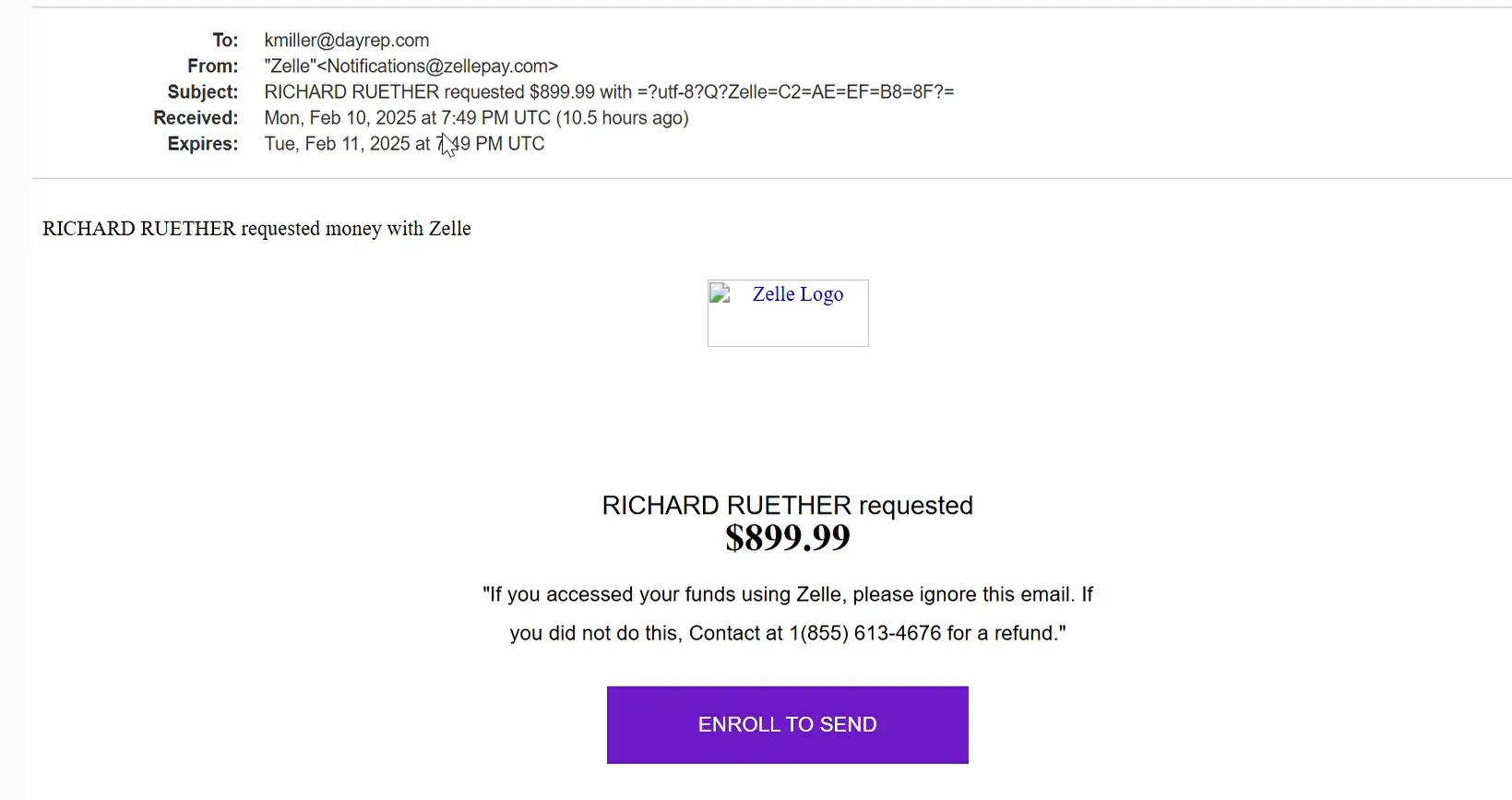Scammers are getting smarter, and now they’re using the name “Richard Ruether” to trick people through Zelle. Many have reported getting fake emails asking for money transfers.
These emails seem real because they use official-looking addresses like “notifications@zellepay.com.” But just because an email looks legit doesn’t mean it is. Scammers use tricks to make them seem trustworthy and convince people to send money.
In this scam, you might get an email saying “Richard Ruether” is requesting a payment.
The amount changes—sometimes $900, sometimes $1,600. If you look closely, you’ll see small red flags, like weirdly formatted phone numbers or letters swapped for numbers (like “O” instead of “0”).
Even people who don’t use Zelle have gotten these emails, which shows scammers are sending them to as many people as possible.
What is the “Richard Ruether” Zelle Scam?
This scam tricks people into sending money through Zelle, a popular money transfer app. Since Zelle sends money instantly, it’s almost impossible to get it back once it’s gone.
Sometimes, scammers pretend they sent you money by accident and ask you to return it. They take advantage of people’s kindness.
But in reality, they might be using a stolen bank account or a hacked Zelle profile. If you send money back, you could lose your own cash while their original payment gets reversed.
Some victims say they get tons of calls and messages demanding they return the “mistaken” money.
Scammers even threaten to call the police to scare people into sending money quickly. They hope you panic and act before realizing it’s all a lie.
Our Opinion
This is one of the trickiest Zelle scams out there because it plays on people’s honesty and fear. If you get a payment request from “Richard Ruether,” don’t respond.
Even denying the request could show scammers that your account is active, making you a target for future scams.
The best thing to do is ignore the request. If you get money from a stranger, don’t send it back yourself. Instead, call your bank and report it.
Banks have the right process to handle mistaken transfers, and a real sender can go through their bank to fix the mistake.
Always be cautious with urgent money requests, especially through Zelle, CashApp, or Venmo. Scammers use pressure to rush you into bad decisions.
If someone is threatening or demanding money, block them immediately. Never send money or share personal details out of fear.
What to Do If You Get Scammed?
If you already sent money to a scammer, act fast. Call your bank or Zelle’s customer service right away. Even though Zelle payments are usually final, your bank might help if you report it quickly.
Make sure to give them all the details, including the scammer’s email and any messages you received.
Also, report the fraud to Zelle and your bank. Some banks investigate scam cases and may refund your money in rare cases.
If the scam involved threats, report it to the Federal Trade Commission (FTC) and the Internet Crime Complaint Center (IC3).
If a scammer sends you money and then asks for it back, don’t return it yourself. Instead, tell your bank what happened. They can handle it the right way and make sure you don’t lose your own money.
Usagoodclothes.com claims to sell a wide range of clothing at low prices. It promotes itself as the perfect place for fashion lovers who want quality outfits at discounted rates.


